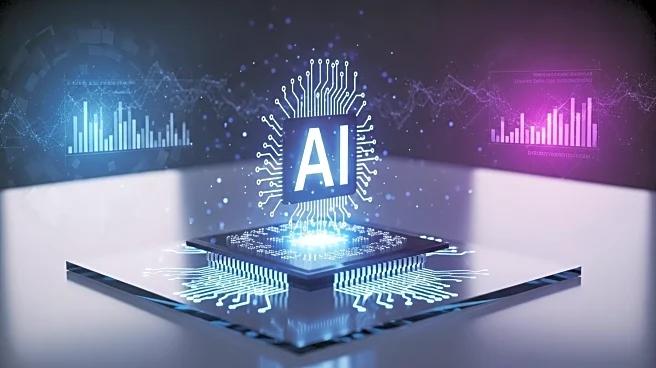What's Happening?
Yolanda Seals-Coffield, the chief people and inclusion officer at PricewaterhouseCoopers (PwC) U.S., has expressed concerns regarding the impact of artificial intelligence (AI) on the development of foundational skills among entry-level professionals. Seals-Coffield highlighted the analogy of a surgeon needing to practice before performing live procedures, emphasizing the importance of understanding foundational skills. This concern arises as AI increasingly takes over routine tasks traditionally handled by entry-level accountants, potentially hindering their ability to develop necessary skills for higher-level work. The shift from performing menial tasks to vetting AI's work and analyzing its data raises questions about how new accountants will acquire the experience needed to evaluate AI's results effectively.
Why It's Important?
The integration of AI into accounting practices is transforming the industry by automating routine tasks, allowing firms to expand capacities without increasing headcount. However, this shift poses a challenge for the development of foundational skills among new accountants, which are crucial for their progression to more complex roles. The potential erosion of these skills could exacerbate existing pipeline issues within the profession, as entry-level professionals may lack the necessary experience to interpret and confirm AI-generated outputs. This situation underscores the need for a balanced approach that leverages AI's capabilities while ensuring that foundational skills are cultivated and maintained.
What's Next?
As AI continues to evolve, accounting firms may need to reassess their training and development strategies to ensure that entry-level professionals acquire the necessary skills to interpret AI-generated data effectively. This could involve integrating AI education into accounting curriculums and providing hands-on experience with foundational tasks. Firms may also explore hybrid models that combine AI automation with traditional skill-building exercises to prepare new accountants for the complexities of higher-level work. Stakeholders, including educational institutions and industry leaders, may engage in discussions to address these challenges and develop solutions that balance technological advancements with skill development.
Beyond the Headlines
The broader implications of AI's impact on skill development extend beyond the accounting industry, potentially affecting various sectors where routine tasks are automated. This shift may redefine what constitutes foundational skills, emphasizing critical thinking and adaptability over technical proficiency. As AI becomes more prevalent, professionals across industries may need to focus on understanding the context and implications of AI-generated outputs, fostering a culture of continuous learning and adaptation. The ethical considerations of relying heavily on AI for decision-making processes also warrant attention, as human judgment and intuition remain vital components of effective professional practice.











